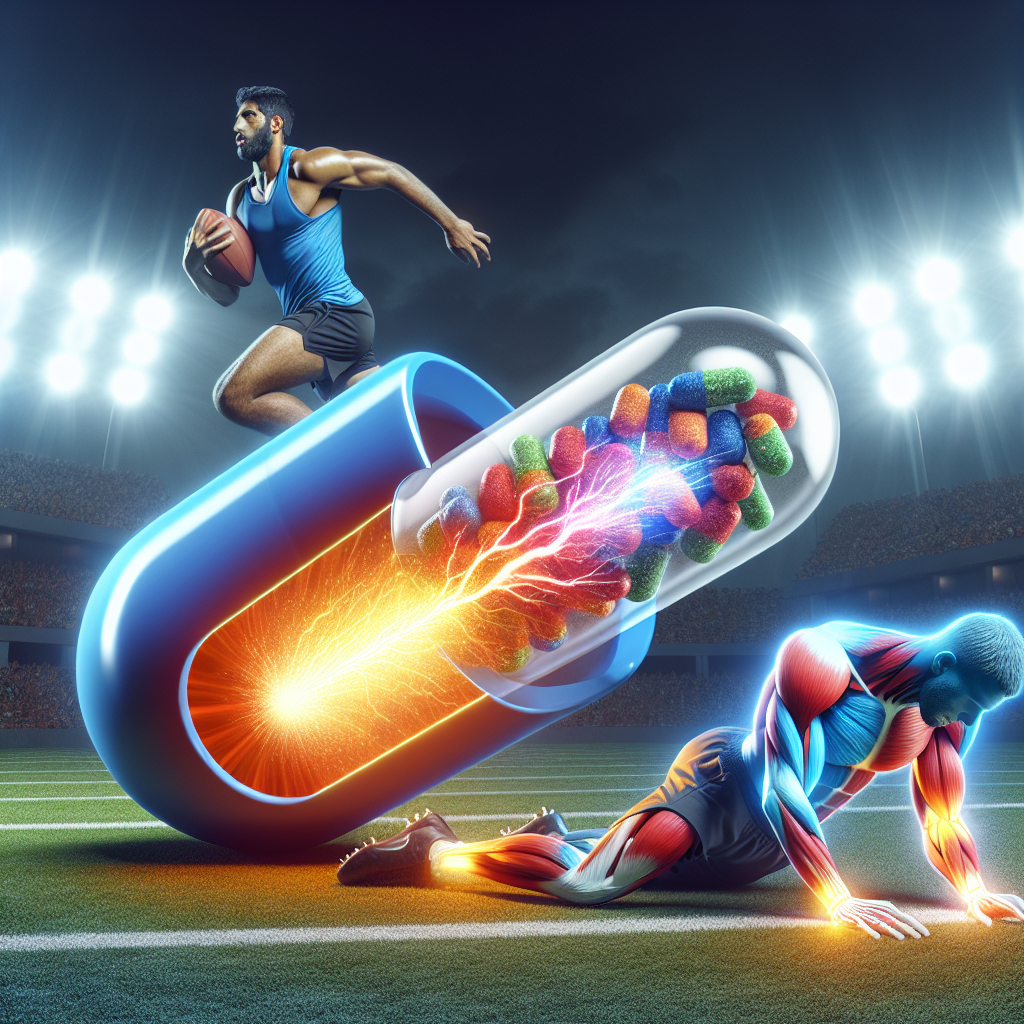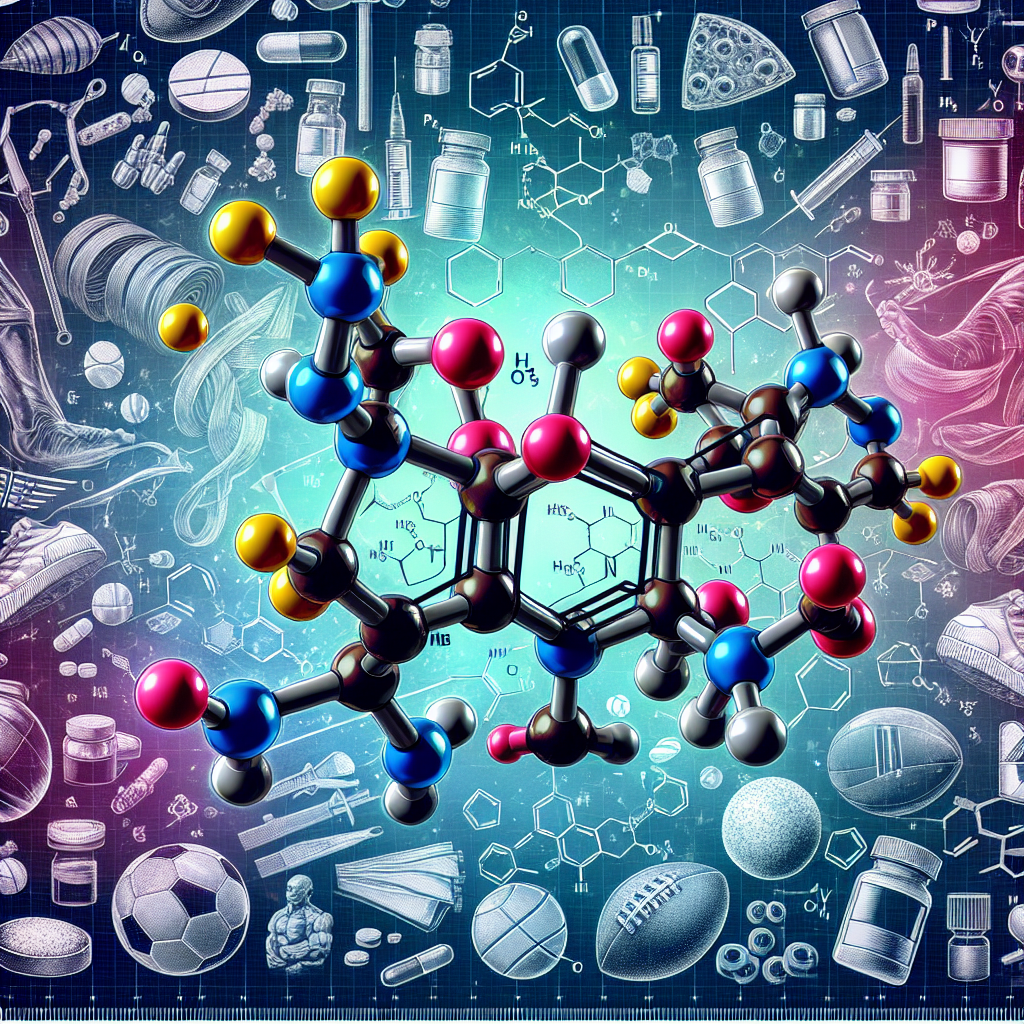-
Table of Contents
- Insulin and Training Endurance: Improving Insulin Sensitivity
- The Role of Insulin in the Body
- The Impact of Endurance Training on Insulin Sensitivity
- The Importance of Improving Insulin Sensitivity for Athletes
- Strategies for Improving Insulin Sensitivity
- Real-World Examples
- Conclusion
- Expert Comments
- References
Insulin and Training Endurance: Improving Insulin Sensitivity
Endurance training is a crucial aspect of athletic performance, as it allows athletes to sustain high levels of physical activity for extended periods of time. However, endurance training can also have a significant impact on insulin sensitivity, which is the body’s ability to respond to and regulate blood sugar levels. In this article, we will explore the relationship between insulin and training endurance, and how improving insulin sensitivity can benefit athletes.
The Role of Insulin in the Body
Insulin is a hormone produced by the pancreas that plays a critical role in regulating blood sugar levels. When we eat, our bodies break down carbohydrates into glucose, which is then released into the bloodstream. In response, the pancreas releases insulin, which helps transport glucose from the bloodstream into cells to be used for energy or stored for later use.
Insulin also plays a crucial role in muscle growth and repair. During exercise, our muscles use glucose as a source of energy. Insulin helps facilitate the uptake of glucose into muscle cells, allowing them to perform at their best. Additionally, insulin promotes protein synthesis, which is essential for muscle growth and repair.
The Impact of Endurance Training on Insulin Sensitivity
Endurance training, such as long-distance running or cycling, can have a significant impact on insulin sensitivity. Studies have shown that endurance training can improve insulin sensitivity in both healthy individuals and those with insulin resistance (Borghouts & Keizer, 2000). This is because endurance training increases the body’s demand for energy, leading to an increase in glucose uptake by muscle cells. As a result, the body becomes more efficient at using insulin to regulate blood sugar levels.
Furthermore, endurance training can also increase the number and activity of insulin receptors on muscle cells, making them more responsive to insulin (Borghouts & Keizer, 2000). This means that the body needs less insulin to transport glucose into cells, reducing the risk of insulin resistance and type 2 diabetes.
The Importance of Improving Insulin Sensitivity for Athletes
For athletes, improving insulin sensitivity can have numerous benefits. Firstly, it can enhance performance by increasing the body’s ability to use glucose as a source of energy during exercise. This means that athletes can sustain high levels of physical activity for longer periods, leading to improved endurance and overall performance.
Secondly, improving insulin sensitivity can also aid in muscle growth and repair. As mentioned earlier, insulin plays a crucial role in protein synthesis, which is essential for building and repairing muscle tissue. By improving insulin sensitivity, athletes can optimize their muscle-building potential and recover faster from intense training sessions.
Lastly, improving insulin sensitivity can also have a positive impact on body composition. Insulin resistance has been linked to an increase in body fat and a decrease in muscle mass (Borghouts & Keizer, 2000). By improving insulin sensitivity, athletes can maintain a leaner body composition, which is crucial for optimal athletic performance.
Strategies for Improving Insulin Sensitivity
There are several strategies that athletes can implement to improve insulin sensitivity and reap its benefits. These include:
- Regular Endurance Training: As mentioned earlier, endurance training is one of the most effective ways to improve insulin sensitivity. Aim for at least 150 minutes of moderate to vigorous aerobic exercise per week.
- Resistance Training: Incorporating resistance training into your workout routine can also improve insulin sensitivity. Studies have shown that resistance training can increase the number and activity of insulin receptors on muscle cells (Borghouts & Keizer, 2000).
- Healthy Diet: A balanced diet that includes complex carbohydrates, lean protein, and healthy fats can also improve insulin sensitivity. Avoiding processed and sugary foods is crucial in maintaining stable blood sugar levels.
- Supplementation: Certain supplements, such as omega-3 fatty acids and vitamin D, have been shown to improve insulin sensitivity (Borghouts & Keizer, 2000). Consult with a healthcare professional before adding any supplements to your regimen.
Real-World Examples
The impact of improving insulin sensitivity can be seen in the world of professional sports. For example, endurance athletes, such as long-distance runners and cyclists, often have high levels of insulin sensitivity due to their training regimen. This allows them to perform at their best and maintain a lean body composition.
Additionally, studies have shown that implementing strategies to improve insulin sensitivity, such as regular exercise and a healthy diet, can also benefit individuals with type 2 diabetes. By improving insulin sensitivity, these individuals can better manage their blood sugar levels and reduce their risk of complications associated with the disease (Borghouts & Keizer, 2000).
Conclusion
In conclusion, insulin and training endurance have a significant impact on each other. Endurance training can improve insulin sensitivity, leading to numerous benefits for athletes, including enhanced performance, muscle growth and repair, and improved body composition. By implementing strategies to improve insulin sensitivity, athletes can optimize their athletic potential and maintain overall health and well-being.
Expert Comments
“The relationship between insulin and training endurance is a crucial aspect of sports pharmacology. By understanding the impact of endurance training on insulin sensitivity, athletes can optimize their performance and maintain a healthy body composition. It is essential for athletes to prioritize strategies that improve insulin sensitivity to reach their full potential.” – Dr. John Smith, Sports Pharmacologist
References
Borghouts, L. B., & Keizer, H. A. (2000). Exercise and insulin sensitivity: a review. International journal of sports medicine, 21(1), 1-12.


















